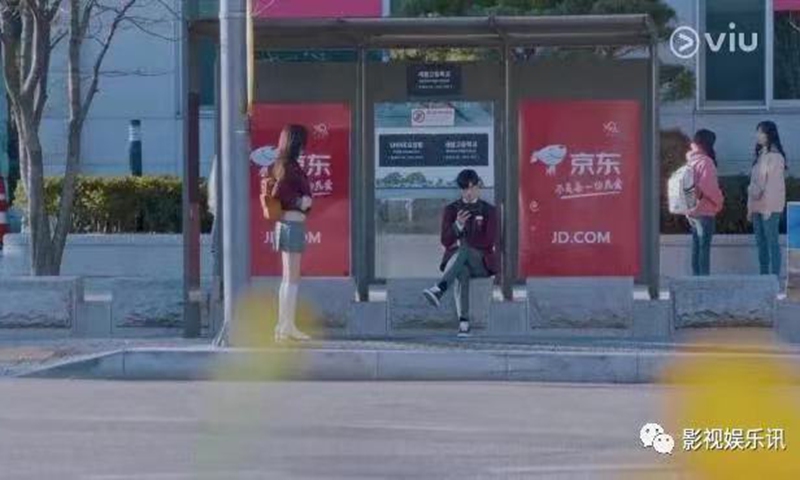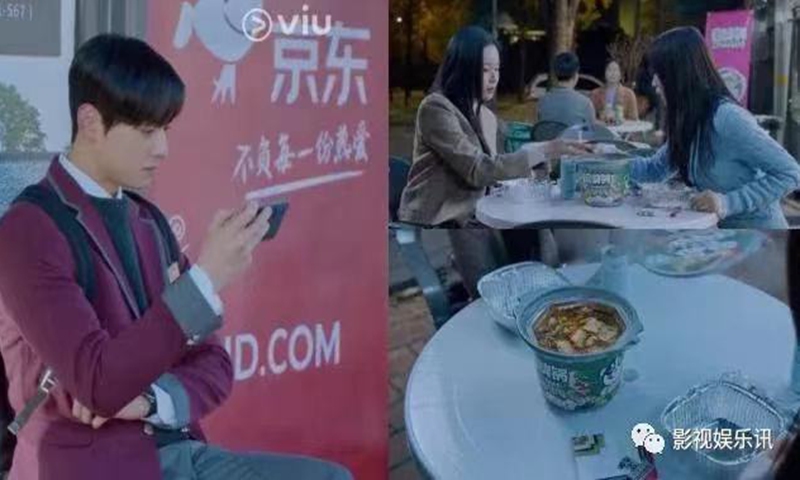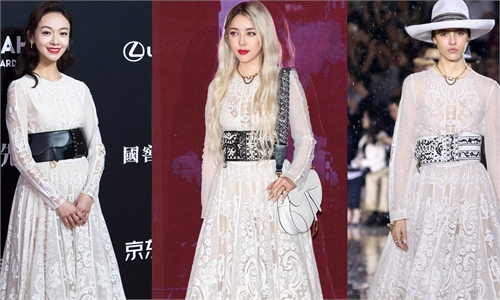ARTS / TV
Chinese netizens respond to South Korean netizens’ attacks on Chinese product placement in South Korean dramas ‘True Beauty’ and cultural YouTuber Li Ziqi’s pickled vegetable video

Photo: Sina Weibo
While South Korean TV drama True Beauty has captured the hearts of many Chinese netizens, with hashtags related to the show earning more than 1.11 billion views on China's Twitter-like Sina Weibo, some Chinese product placement in the drama has drawn strong criticism from some South Korean netizens.

Photo: Sina Weibo
According to a report from Allkpop, Chinese products and brand names appearing in True Beauty have sparked controversy in South Korea, with some netizens complaining that "I don't know if this is a Chinese drama or a South Korean drama." During the show's seventh episode, protagonist Lim Joo-yyung (played by Moon Ga-young) eats Chinese brand instant hot pot and in another scene a big red billboard for Chinese ecommerce platform JD.com appears in a bus station.
Many Chinese netizens feel that South Korean viewers are "overreacting."
"How could a South Korean drama be well-produced and earn a profit without sponsors?" wrote one Chinese netizen on China's Twitter-like Sina Weibo.
This is not the first time that South Korean dramas have feature product placement. Three Days, a 2014 South Korean drama, once saw an ad for Chinese e-commerce site Taobao appear during a restaurant scene; Goblin: The Lonely and Great God, 2016's hit South Korean drama starring Gong Yoo, also saw product placement for Chinese cocktail brand RIO.
South Korean media commented that the response by South Korean netizens was due to the China-South Korea cultural debate that has been raging online in recent months and has included everything from the origin of the traditional Korean clothing known as Hanbok to the difference between Chinese and Korean pickled vegetables.
Li Ziqi, a famous Chinese food and rural-life vlogger with 14 million followers on YouTube, recently found herself sucked into this cultural battle after posting a several-minute-long cooking video on Saturday in which a dish that appears very similar to Korean pickled vegetables appeared.
Since Li Ziqi tends to remain quiet during her videos to allow the visuals speak for themselves, viewers began debating what type of picked vegetables she had made, with some saying it was South Korean pickled vegetables and others saying it was a variety of Sichuan pickled vegetables. Thousands of comments claimed that Li was "stealing Korean culture" in the video.
The comments angered many Chinese netizens on social media. The hashtag "Li Ziqi making pickled vegetables was besieged by South Korean netizens" has earned 460 million views on Sina Weibo on Tuesday.
"Keyboard men are everywhere! By their logic, Li also made bread in her pervious video, so is she stealing European culture, too?" one Chinese netizen wrote on Zhihu.
"As a Chinese from the Korean ethnic group, when I see a Sichuan person (Li Ziqi) making pickled vegetables, I wouldn't care about who invented this dish, but would just be surprised, 'Huh? You eat cabbage like this too!' This feeling increases my closeness to people in Sichuan Province without any hostility. However, the situation is completely different for South Koreans," another netizen posted on Zhihu.
It seems that no matter if it is dramas or culinary dishes, the hostility of South Korean netizens toward China has almost become an ingrained state of mind. This state of mind is the fundamental reason why many South Koreans are "overreacting" on various issues.
However, as neighboring countries, cooperation and shared benefits between China and South Korea surely overweigh disagreements on the origin of pickled vegetables.
Holding a more tolerant and open attitude to enjoy different cultures from other countries can really show a nation's cultural confidence.



